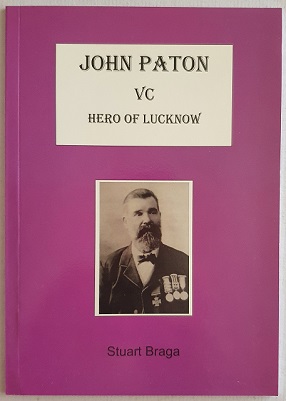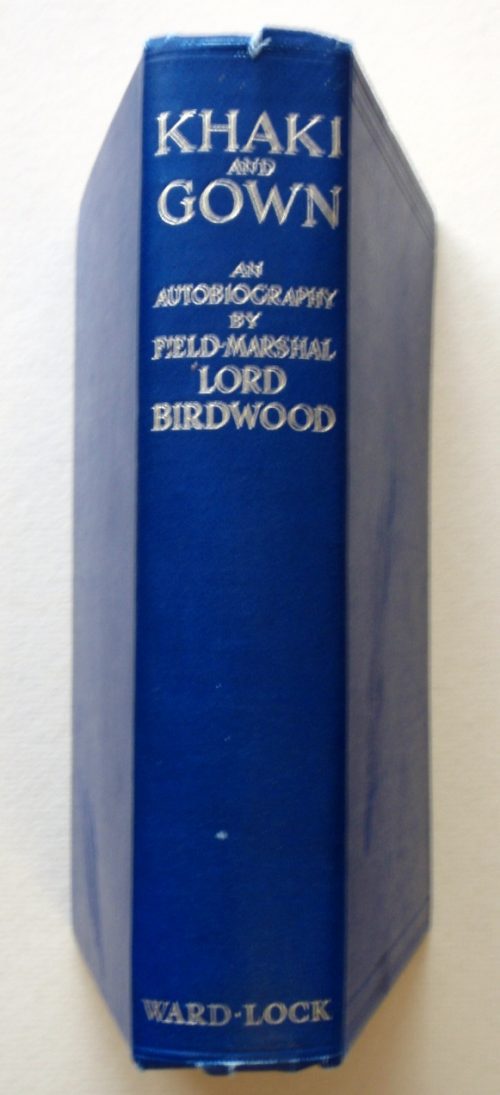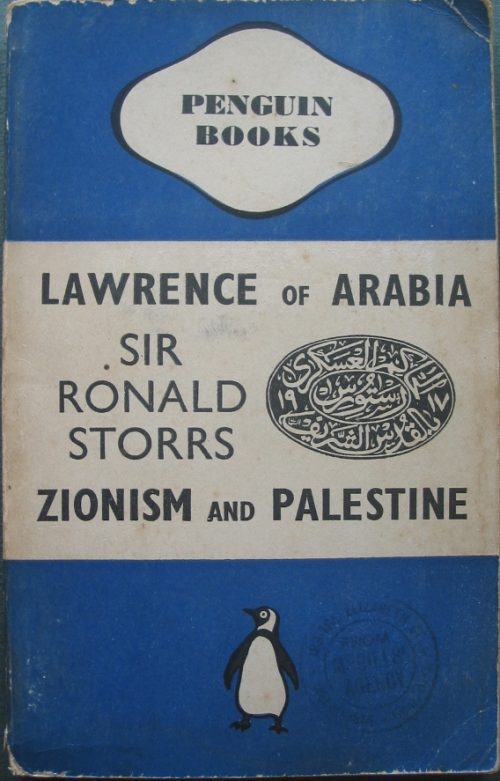Description
Title: John Paton VC – The Hero of Lucknow
Author: Braga, Stuart
Condition: Mint
Edition: 1st Edition
Publication Date: 2007
ISBN: 9780959726121
Cover: Soft Cover without Dust Jacket – 36 pages
Comments: The biography of John Paton VC.
John Paton (1834-1914), soldier and prison officer, was born in Stirling, Scotland, son of Matthew Paton, soldier, and his wife Isabella, née Bell. He enlisted in the Black Watch, but at the outbreak of the Crimean war volunteered in the Argyll and Sutherland Highlanders. He first saw active service twelve days after arriving in the Crimea in the battle of the Alma, September 1854. He then fought at Balaclava and served for about a year before Sebastopol. At the end of the war he returned to Scotland. In 1857 the regiment was on its way to China when it was diverted to India.
Paton saw active service in the mutiny and won the Victoria Cross at Lucknow on 16 November 1857, ‘for distinguished personal gallantry … in proceeding round the Shah Nujjiff under an extremely heavy fire, discovering a breach in the opposite side, to which he afterwards conducted the Regiment, by which means that important position was taken’. He was voted his award by the non-commissioned officers of his regiment. In a later interview he emphasized his good fortune and recalled his fallen comrades: ‘At Lucknow we had several hard fights in one day, but we pushed on to the besieged Residency and had [Sir Henry] Havelock out the next night together with the women and children. It was there I won the Cross. My bonnet was shot away and my pouch, also a button from the front of my coat, besides having the arm of my overall torn by a bullet. Yet then, as afterwards, though always in the thick of it, I never received a scratch, although many and many a time, my beloved comrades dropped on either side of me’. Paton was certainly ‘in the thick of it’ in the first relief of Lucknow, the battle of Cawnpore, the second siege of Lucknow as well as storming many forts.
In 1861 Paton left the army and went to New South Wales where he joined the prison service on 28 May. He was chief warder at Port Macquarie for ten years from September 1865, chief gaoler at Deniliquin in 1875-88 where his wife acted as matron, and on 15 November 1888 he was appointed governor of Berrima gaol. On 1 July 1890 he succeeded Peter Herbert as governor at Goulburn gaol at a salary of £388. He retired from the prison service on 29 February 1896 and went to live in Sydney.
John Paton, ‘Hero of Lucknow’, died at his residence, Verona, 19 Prospect Road, Summer Hill, on 1 April 1914, survived by twin daughters of his first wife Mary Miller (d.1869), whom he had married at Goulburn in 1866, and by his second wife Amelia Martha Crook Spurling (d.1923), whom he had married in Sydney in 1872. He was buried with full military honours in the Church of England cemetery, Rookwood. His estate was sworn for probate at under £900.
A memorial is in St Andrew’s Church of England, Summer Hill, where his Victoria Cross and campaign medals are preserved.





